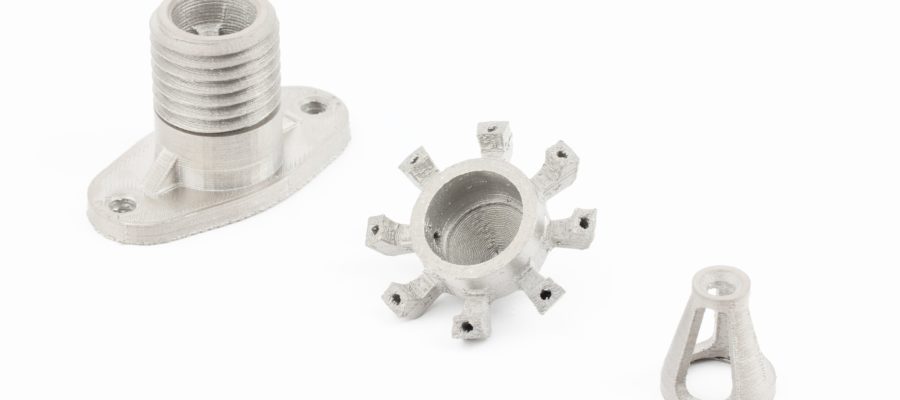Desktop Metal®, a leader in mass production and turnkey additive manufacturing solutions, has qualified the Titanium Alloy Ti-6Al-4V (Ti64) for its use in extrusion-based bound metal additive manufacturing technologies. This new material for manufacturing with the Studio System 2™ allows the printing of high-performance metal parts in low-volume for pre-production and end-use applications. Moreover, due to its biocompatibility, it can also be used for medical applications for the printing of surgical devices and implants.
The Titanium Alloy offers great advantages and mechanical properties. Now customers can print stronger parts with Ti-6Al-4V (Ti64), a material that ensures better elongation, tensile strength, corrosion resistance, and biocompatibility. Moreover, Ti64 for Studio System 2 produces lightweight 3D printed parts due to its high strength-to-weight ratio, thus becoming ideal for countless applications from key industries and just to name a few, aerospace and defense, automotive, oil and gas, and medical.
Tensile properties include 730 MPa yield strength, 845 MPa ultimate tensile strength, and 17 percent elongation. These mechanical properties exceed those set by ASTM F2885-17 standards for metal injection molded surgical implant applications.
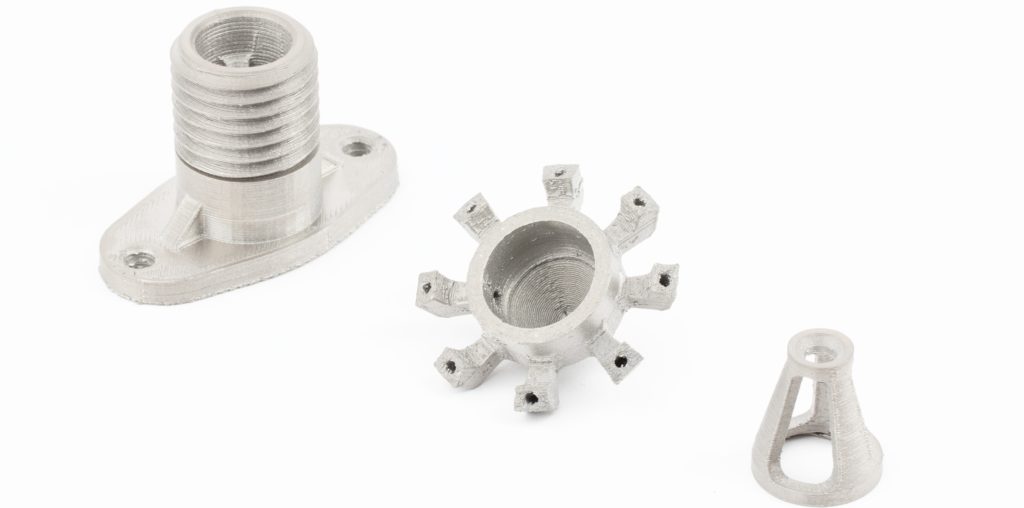
“Titanium has been a challenging material for bound metal 3D printing because it is both extremely reactive in powder form and difficult to sinter,” said Jonah Myerberg, co-founder and CTO of Desktop Metal. “We are excited to be the first to commercialize the most common titanium alloy, Ti64, for 3D printing through our Studio System 2 solution, opening the door to more accessible production of high-performance titanium parts.”
Key applications
- Machine Bracket
This machine bracket has been designed using a gyroid lattice infill and titanium in place of 17-4PH stainless steel to reduce weight and material while maintaining the required functional strength and stiffness. The resulting geometry would be impossible to produce using conventional manufacturing processes due to its complexity. 3D printing this new design on the Studio System 2 in Ti64 reduces the part weight by 59 percent.
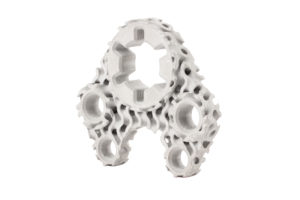
- Telescope Focus Ring
Small telescope focus rings hold lenses in place on a mobile telescope, which has multiple motors that are used to position and focus the lenses. 3D printing the rings in titanium ensures that all components are lightweight, allowing the use of smaller motors, reducing the wear on the components and the overall cost of the assembly. Typically this part is produced in low volumes, which would require investing in expensive tooling or custom fixturing using conventional manufacturing processes. The Studio System 2 supports printing up to six focus rings in less than 24 hours, which would be ready for installation in a matter of days.
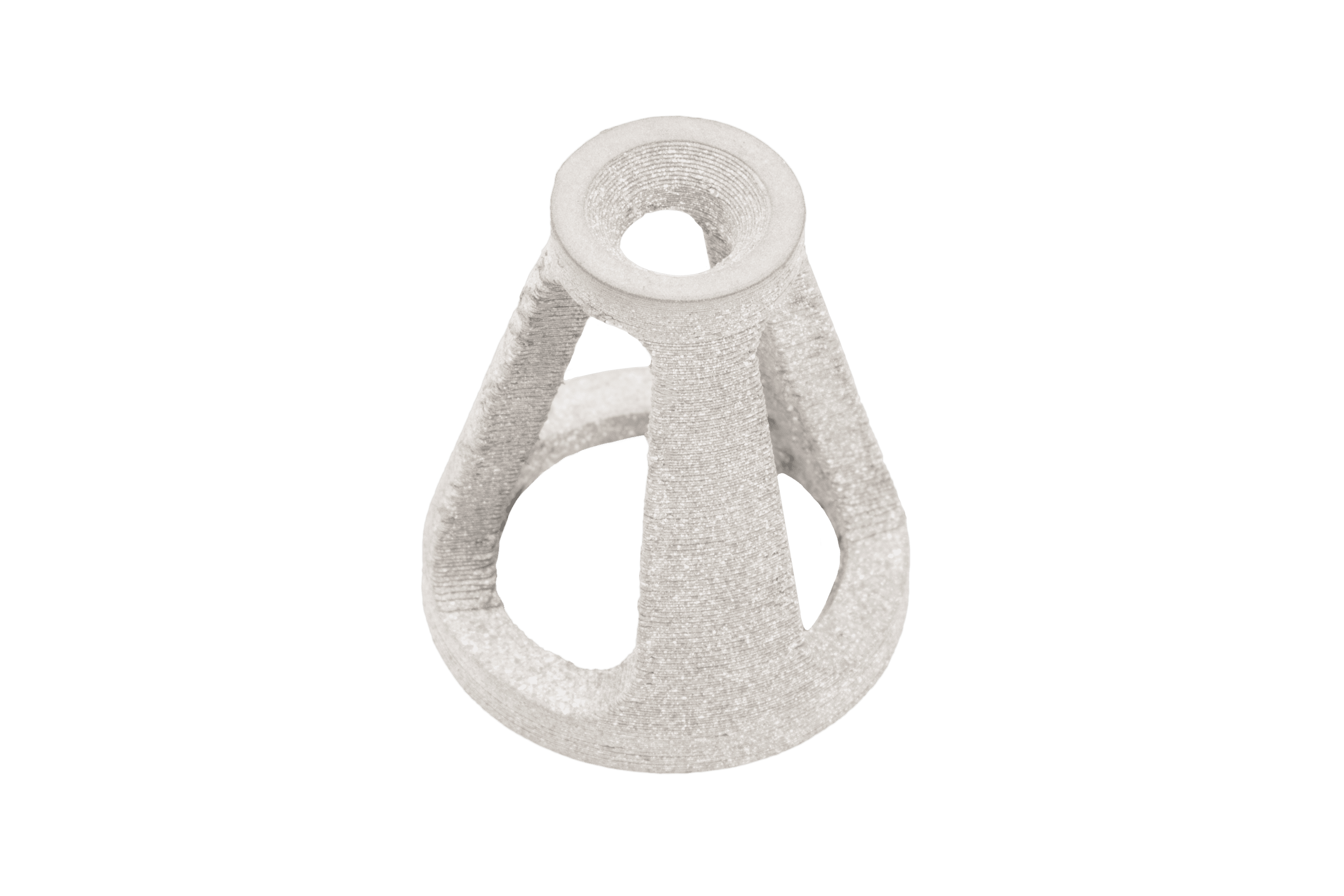
- Drone Coupling
A drone coupling is used to fasten two assemblies together on a drone frame. One of the main challenges with drones is battery life, which is predominantly determined by the weight of the drone. Producing the coupling in titanium enables significant weight reduction while maintaining the structural integrity required for the drone frame. The Studio System 2 supports low volume production of this part in quantities of 15 to 25 per week before moving it into mass production, all without any tooling or machining necessary.
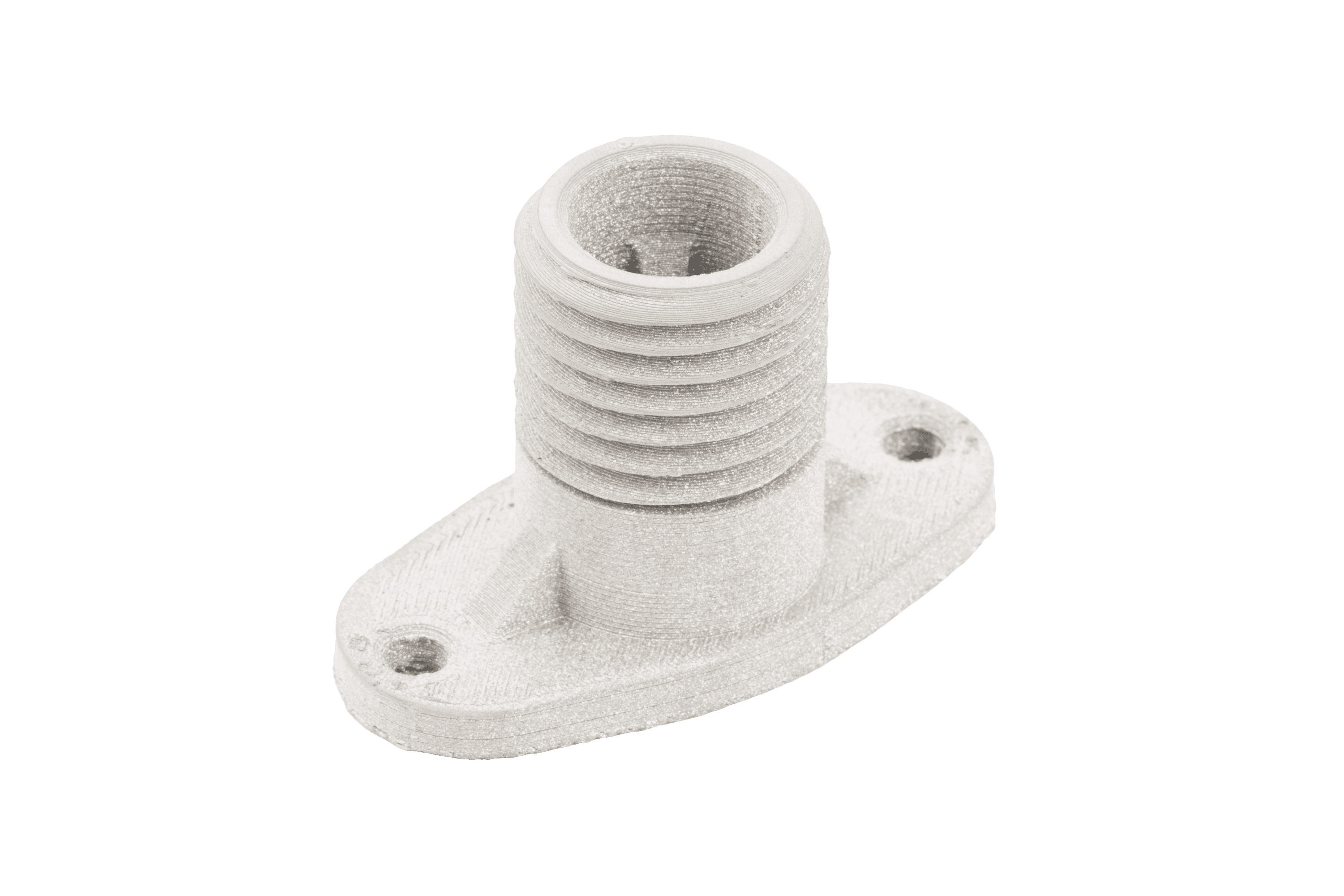
- Fuel Injector Nozzle
Fuel injector nozzles are critical for safe and reliable operations in the aerospace industry, where they are responsible for driving fuel into a burner for propulsion. This part features internal channels that can result in enhanced burner performance but would be impossible to create using conventional manufacturing processes. Titanium is an essential material for this application as the nozzle needs to be able to withstand extreme temperatures and pressures while remaining lightweight. With Studio System 2, engineers can test many design variations of the nozzle in just days with as many as four versions of the nozzle printed in less than 24 hours.
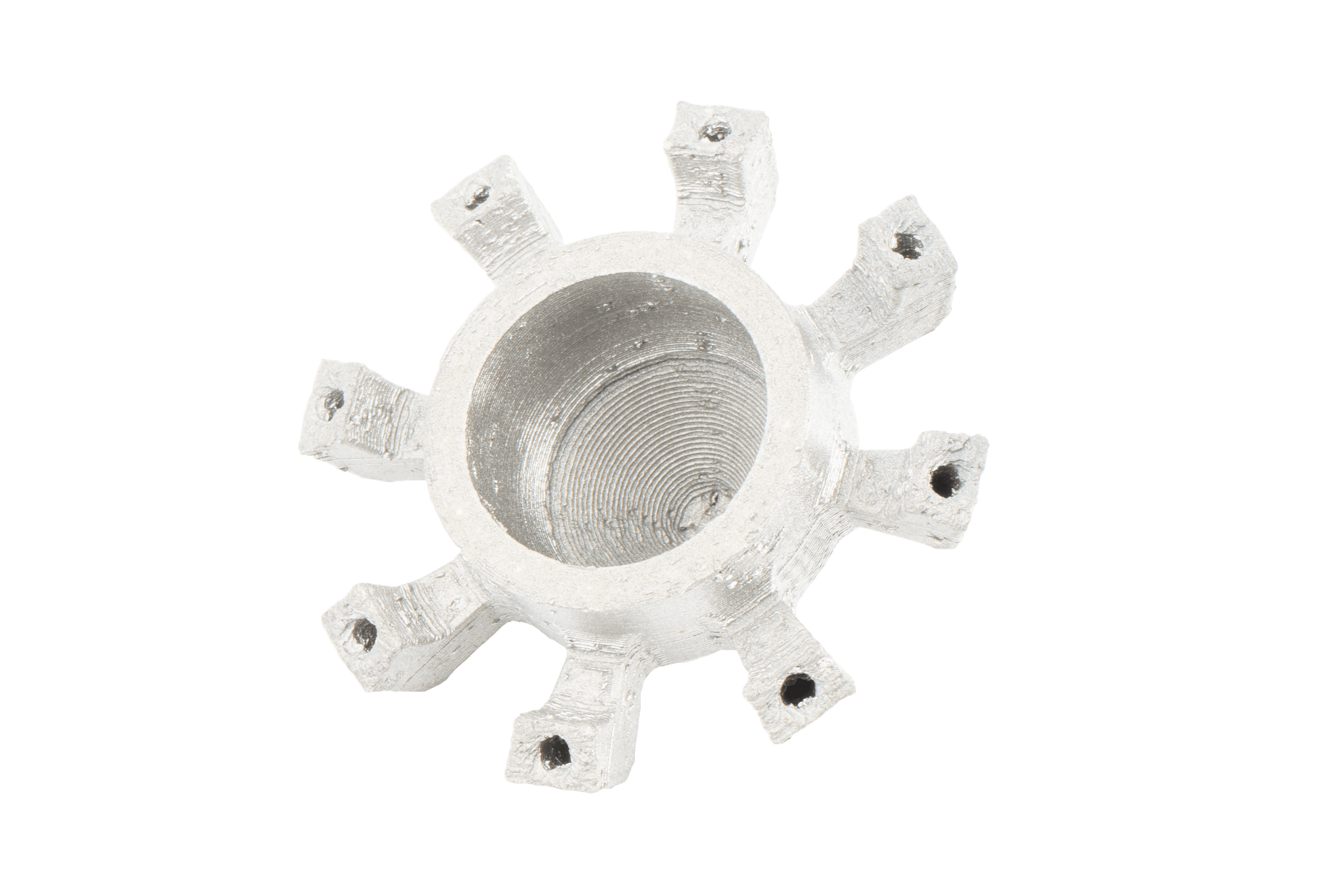
Besides the Ti64, the Studio System 2 is also compatible with 316L stainless steel, 17-4PH stainless steel, 4140 low-alloy steel, H13 tool steel, and copper. Studio system 2 is an office-friendly metal additive manufacturing system based on Desktop Metal’s proprietary Bound Metal Deposition™ (BMD) technology that prints high-quality metal parts in two easy steps.
3D printing with titanium is incredibly valuable in industries like aerospace because of the material’s ability to support complex and lightweight designs,” said Steve Wozniak, co-founder of Privateer Space, a new satellite company focused on monitoring and cleaning up objects in space. “With the Studio System 2, the team at Privateer Space will be able to achieve the affordability and lightweighting capabilities needed to pave the way for our satellite design and launch. This technology is truly a differentiator in helping companies to accelerate innovations in space and, through the material advancements that Desktop Metal is making, we have an amazing opportunity to collaborate and keep space accessible for future generations.”
Starting September 2021, it is expected for Desktop Metal to begin shipments and make the Ti64 for Studio System 2 commercially available.
